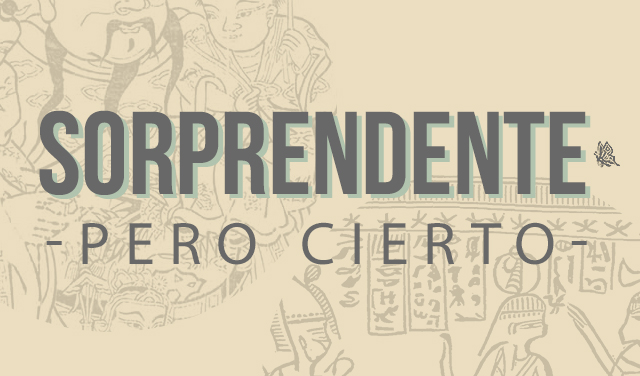Surprising ...But true

Sooner or later we find ourselves in social contexts that can lead to some awkward situations: an alumni meeting 15 years later, a business lunch with your boss, or when you become a "+1" at a wedding or at your partner’s company Christmas party.
For occasions such as these, here are 12 historical anecdotes that will allow you to raise to the bar in the art of often uncomfortable small talk.
- In all probability pre-historic man knew how to make wine, and paleontologists have found fossils that appear to be the remains of grape pomace or pressed grapes.
- The Egyptians introduced the labeling of wine. One such label read: “in the year 30, the good wines from well-irrigated land of the temple of Ramses II in Per-Amon. Cellar manager: Tutmes”.
- Ancient Chinese literature features the case of a man who was punished in the year 2285 B.C…. for mixing wine with rice-wine!
- Dionysius was the Greek god of the sub-conscious, of instinct, impulse, and thus came to be the god of wine. Thus wine liberates man from his cold rationalism and reveals to him his true interior. Or, as the Romans used to say, in vino veritas.
- Wine is mentioned more than 200 times in the Bible.
- Towards the second century A.D. it was estimated that nearly 20 million amphorae of Spanish wine had been shipped to the city of Rome. Solid proof of this fact is provided by the extraordinary artificial hill known as Monte Testaccio located in Rome. The hill is made up of small pieces of broken amphorae. This is because, 2000 years ago, the Tiber River was navigable, and all the ships that arrived in Rome transporting oil, grain or wine were laden with amphorae. Logically, many of the latter got broken during the crossing, and, once they had been unloaded, they were gradually piled up, thus creating the hill.
- Wine was already being made of wild grapes by nomadic people 6000 or 7000 years ago. When they became settled, the vine was, along with olive and fig trees, one of the first plants to be cultivated and exploited by man.
- It is a widespread opinion among many historians that the foundations of the modern economy, money, contracts, modes of payment, accounting and even numbers, emerged from the needs of the wine trade during the time of the Pharaohs.
- The Greeks perfected the amphora, and added products to the wine to aid its conservation, such as, for example, pitch, resin and spices. Resin wine, or retsina, is still popular in modern Greece.
- It was the Etruscans who planted the first vines in Italy, even when Rome was yet to be built.
- It was when Julius Caesar conquered Gaul that the Romans first came across wooden barrels, an invention of the Gallic tribes. The Celts used these barrels for beer. The Romans soon understood that they were ideal for transporting wine.
- In America, the vine preceded the Europeans. When Leif Erikson and Columbus visited the American continent found in the wild vines. Erickson called the region Vinland, as the Nordic sagas have been transmitted through the centuries.
